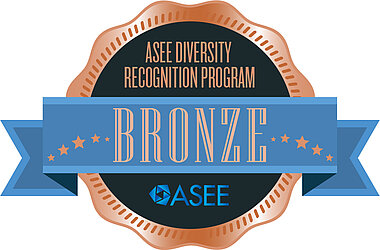
The NDSU College of Engineering is proud to have received a Bronze Award from the American Society for Engineering Education Diversity Recognition Program. The honor means the NDSU College of Engineering is among the nation’s leaders in inclusive excellence.
Knowing that we are far better together, we’ve made diversity and inclusivity core values of the College of Engineering. While this award is a recognition of some of our recent progress, more importantly, it’s a reminder of the work we still have to do.
The ASEE Diversity Recognition Program was created to publicly recognize engineering colleges that make “significant, measurable progress in increasing the diversity, inclusion, and degree attainment outcomes of their programs.” The program will eventually include three levels of achievement: bronze, silver and gold.
Seven Best Teaching Practices to Support Minority Students

1
Learn more about what you can do to promote diversity and inclusion by reading publications, books and social media posts written by people from underrepresented groups within engineering, computer science and construction management.
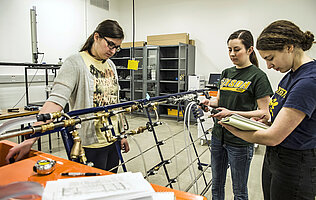
2
Frame problems within a human, social or environmental context. Minority (and many majority) students connect with and retain information when put into these contexts. As an added bonus, this ties into ABET Student Outcome 2.
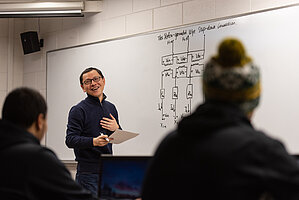
3
Allow your students to fail in the class without failing the class. By allowing students to make mistakes on their homework without having it negatively impact their final grade, you are creating a positive environment while still preparing students for the final summative assessments.
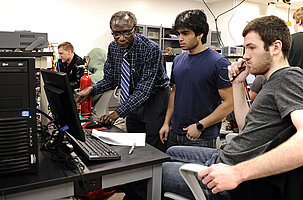
4
Promote active learning in the classroom. Activities like "Think, Pair, Share" and "Turn and Talk" allow students to discuss problems with their peers and can bring questions to light. Doing these activities early and often improves participation.
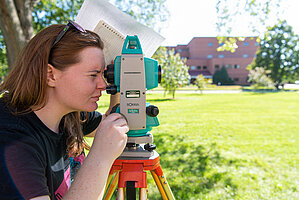
5
Allow students to take greater ownership for their learning. By creating open-ended assignments and projects, students can tie their own interests and culture into their work, strengthening both their understanding and self-efficacy.

6
Provide students with flexibility. Students from underrepresented groups are more likely to be affected by classes that grade attendance or have rigid rules and deadlines for assignments and exams.
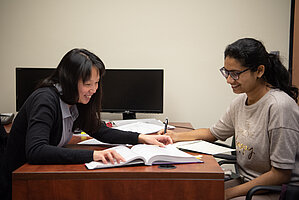
7
Encourage your advisees to join extracurricular groups on campus. A list can be found here. A list of groups connected to the College of Engineering can be found here.
Grading for Equity by Joe Feldman; (2) Culturally Responsive Teaching and the Brain by Zaretta Hammond; (3) Perceived supports and evidence-based teaching in college STEM by Bathgate, Aragon, et al.
Other Resources
Evidence-Based Teaching Practices
Active Learning
Incorporating Real World Context
Diversity and Inclusion at NDSU
The NDSU community prioritizes and values diversity and inclusion. We take collective responsibility for ensuring a sense of belonging, respect, and justice that support the success of each person.
Encouraging, Supporting and Advancing a Diverse, Equitable and Inclusive Community
One of the core values identified in our 2020-2025 Strategic Plan is “We are inclusive – we are proactive about diversity, knowing that we are far better together.” This core value is consistent with those at many other engineering colleges across the country, which, like NDSU, are signatories on the American Society for Engineering Education (ASEE) Deans Diversity Initiative. In order to accelerate the achievement of the ASEE Deans Diversity Pledge goals, our Diversity, Equity and Inclusion Plan includes initiatives around (1) awareness and skill training for College of Engineering faculty, staff, and students; (2) K-12 outreach; (3) pipeline programs; (4) enhancement of the engineering leadership living/learning community, and (5) the addition of new academic programs (such as environmental engineering) that attract diverse students.
In addition, the college leadership team has agreed to formalize the addition of the following statement in the position description of each faculty in the College of Engineering:
All faculty are expected to contribute to a collegial and collaborative campus climate, and to actively encourage, support, and advance a diverse, equitable, and inclusive community.
By explicitly including this language in each position description, we strengthen our commitment to the core values of “We are collegial” and “We are inclusive” that we identified in our strategic plan.


